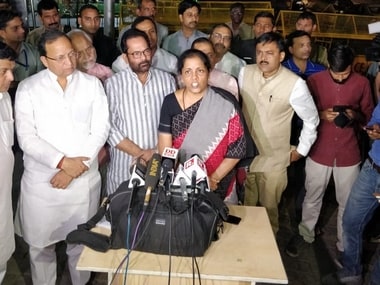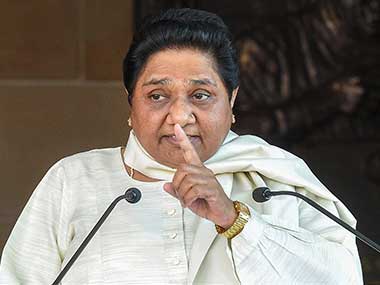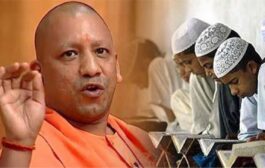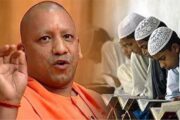Rahul Gandhi’s political adaptation of Buddhist philosophy of loving-kindness is just not cutting ice
In January 2018, Congress leader Shashi Tharoor told the audience at the Mushaira Literature Festival of Delhi’s Hindu College that Rahul Gandhi has “thought very deeply about religion and matters of faith. He is a Shiv Bhakt and seriously practices Buddhist Vipassana and can talk about differences between various schools of it and Hindu philosophy.”
Gandhi himself has never spoken about the influence of Buddhist thought on him. He did make a passing reference to Vipassana in an interview to India Today but he has not spoken publicly about how it has changed him. But over the last year or so, and in his latest round of interviews to the Hindustan Times and NDTV India, the Congress president, it appears, has tried to tap into the Buddha’s ideas of Maitri, or loving-kindness, the ever-changing nature of the self, and the possibility of ushering in social change through the inner transformation of the individual.
We don’t know how much these precepts have changed Gandhi because neither of the two interviewers — Hindustan Times’ Sunetra Choudhury and NDTV’s Ravish Kumar — asked him to spell out the source of his inspiration to change himself. As of now, we have only Tharoor’s word for it. But since it is clear that Gandhi wants to fashion them into a political weapon to counter the Rashtriya Swayamsevak Sangh (RSS) and Narendra Modi, it is pertinent to look closely at what he is trying to do, without seeming to subscribe to Gandhi’s description of Modi as someone filled with hatred.
Indeed, Gandhi’s comments to the Hindustan Times and NDTV India echo Buddha, who said: “Just as the earth does not feel hurt and does not resent, just as the air does not lend to any action against it, just as the Ganges water goes on flowing without being disturbed by the fire, so also you Bhikkus [monks] must bear all insults and injustices inflicted on you and continue to bear Maitri toward your offender.” Buddha advocated that loving-kindness turns a person’s thought so vast as to have no trace of hatred in it.
To the Hindustan Times, Gandhi said that Modi is full of nastiness towards him and his family. “The truth also is, you can’t hate another person without hating yourself…,” Gandhi told the Hindustan Times. He went on to add, “I don’t associate myself with his anger…. The anger is his and is harming only him. It only does damage to me when I grab it and embrace it. I refuse to do that.” Obviously, only through his own experience, Gandhi could have realised the harm he was doing to himself by emotionally responding to (what he describes as) Modi’s anger against him and his family.
Gandhi’s categorical assertion regarding Modi’s self, ironically, violates the Buddhist principle of perceiving the humanity behind the most hurtful or inhuman action of another human. This is what constitutes the idea of loving-kindness. Gandhi famously hugged Modi during a debate in the Lok Sabha last year. Yet he also coined the slogan “Chowkidar chor hai”, undoubtedly an abrasive comment.
Gandhi will justify the chowkidar coinage, as he did to both the Hindustan Times and NDTV India. “As an individual, I love him, like I love every living being. However, I disagree strongly with his ideology and I will do whatever it takes to defeat that ideology,” he told the Hindustan Times.
From the Buddhist perspective, Gandhi’s formulation is flawed. The Buddhist will prefer to transform Modi and the RSS rather than defeat them. Gandhi speaks of his endeavour to annihilate the ego. To NDTV India, for instance, he said he wishes to efface his self, or ego, because it is a barrier for him to fathom the pain of, say, farmers.
Yet as leader of the grand old party, he did not think it was in consonance with its national status to accept the number of seats the Mahagathbandhan in Uttar Pradesh and the Aam Aadmi Party in Delhi were willing to offer to it. In both Uttar Pradesh and Delhi, the Congress has chosen to fight on its own, presumably to the Bharatiya Janata Party’s advantage. It is tough to imbue politics with spiritualism.
Decades before Gandhi was born, BR Ambedkar sought to usher in social change through Buddhism. He studied Buddhism deeply and wrote The Buddha and His Dhamma, a masterly account of Buddhism, and converted to it months before his death. He harnessed Buddhism for social transformation, not on the airy-fairy idea of love. Buddhism signified to him a receptacle of principles to transform a society that could provide the foundation for fostering loving-kindness.
In his Annihilation of Caste, Ambedkar explained why he thought religion was important in politics. “While I condemn a religion of rules, I must not be understood to hold the opinion that there is no necessity of religion.” He quoted the British thinker Edmund Burke, “True religion is the foundation of society, the basis on which all true Civil government rests, and both their sanction.” Ambedkar wanted the ancient rules of life to be replaced with a religion of principles, a true religion, so to speak.
It was, therefore, imperative for him to identify the principles which could constitute the true religion. “…You must give a new doctrinal basis to your religion – a basis that will be in consonance with liberty, equality and fraternity; in short, with democracy.” After decades of studying Buddhism, he came to the conclusion that all the three principles could be found in it.
Most social scientists claim Ambedkar converted to Buddhism to mobilise Dalits and root out the dreadful caste system. Quite another perspective was provided by Mihir Shah, secretary, Samaj Pragati Sahyog, Madhya Pradesh, in his convocation address at Delhi’s Ambedkar University, which was subsequently released as an article. “His [Ambedkar] emphasis is on the fostering of values that would endanger a humane society, based on loving kindness, an impeccable Buddhist virtue. The question he asked himself was: what would foster such a society, imbued with these values? And his clear answer was that this requires a process of inner transformation, without which all activism and all social engineering would come to nothing,” Shah writes.
After analysing Ambedkar’s writings on Buddhism, and demonstrating how he was a precursor to thinker-leaders, from Martin Luther King to Nelson Mandela, Shah writes, “Love must necessarily take on the larger structures of injustice that stand in its way. At the same time, because love is our weapon, we do not seek to defeat anyone and must try not to end up humiliating those positioned against us. For the struggle is not against persons, it is for transformation of the opponent’s view and the system of oppression.”
It does not seem Gandhi wishes to transform the RSS as much as to defeat it. But even his quest to vanquish the RSS-BJP is found wanting. He and the Congress have not ventured beyond the pious platitudes of describing the ideology of the Congress as one of love and that of the RSS-BJP as of hate. It has not taken a measure to counter the RSS that could be said to be equivalent to Ambedkar and his followers converting to Buddhism. Congress has not attempted to identify the structures of injustice, let alone demolish them. Gandhi has rarely, ever visited the victims of lynching for instance.
If Modi targets the Nehru family to distract voters from examining his performance, Gandhi has used the idea of loving-kindness to camouflage his party’s inaction against Hindutva’s bruising politics. In his interview with NDTV India, Gandhi parried Ravish Kumar’s questions pertaining to religious minorities feeling isolated and the failure of the Congress to defend Nehruvian ideas.
Gandhi has undoubtedly become calmer, focused and confident than he was five years ago. It is possible his reading and practising of Buddhism has transformed him, but he is still a long way away from turning loving-kindness into a political weapon against the BJP-RSS.
source: Firstpost.com








































